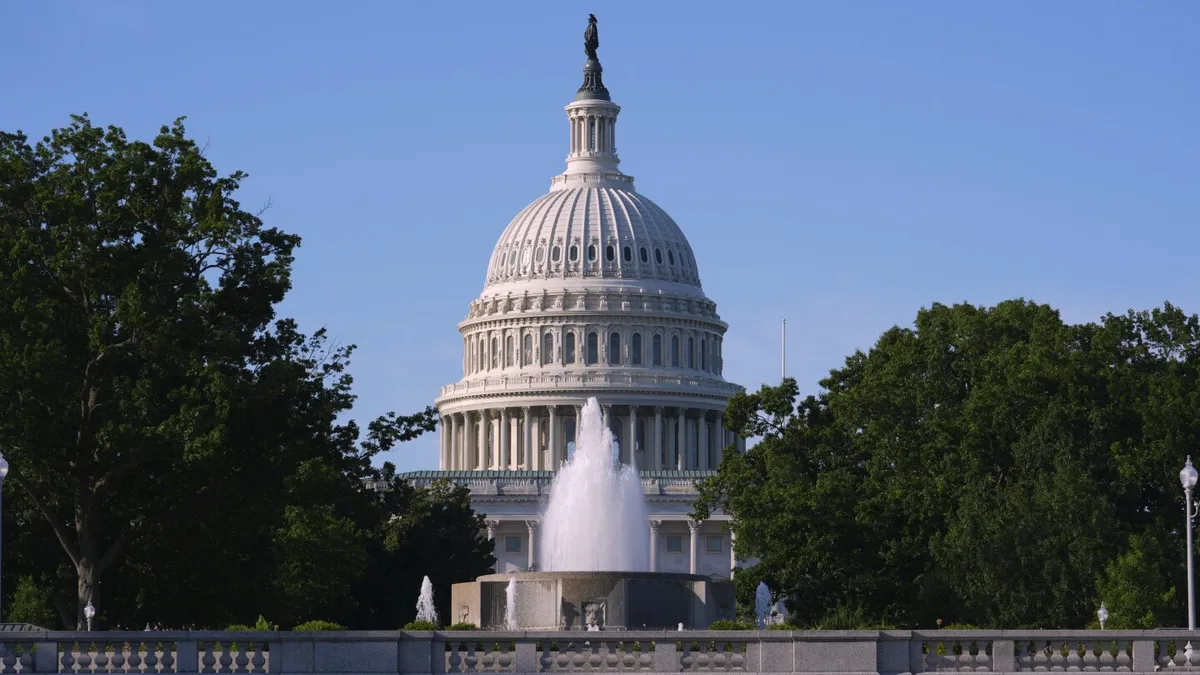
In the midst of heated political discussions regarding President Donald Trump's proposed legislation, often dubbed the “one big beautiful bill,” the Congressional Budget Office (CBO) finds itself at the center of a significant political tug-of-war. With a small team of around 275 employees, the CBO has projected that this proposed legislation could lead to an increase in federal deficits by approximately $2.4 trillion over the next decade. This forecast poses a dilemma for a Republican-led Congress that has spent the past four years critiquing former President Joe Biden and his Democratic counterparts for escalating national debt.
In response to the CBO’s findings, both the White House and Republican leaders have expressed their discontent, arguing that the agency's economic growth projections are overly pessimistic. They assert that the bill will catalyze higher economic growth, thereby generating increased revenue for the government. Conversely, Democrats are leveraging the CBO’s analysis as a critique of the legislation, painting it as financially irresponsible.
The Congressional Budget Office was established over 50 years ago with the aim of providing objective, impartial analysis to assist in the federal budget process. The CBO is mandated to generate a cost estimate for nearly every bill that is approved by the House or Senate committees, and it can also provide early evaluations upon request from lawmakers. Additionally, the CBO publishes a report every Congress outlining strategies to reduce national debt, presenting various arguments for and against each option. Furthermore, it offers detailed estimates when Presidents propose changes affecting mandatory spending programs like Social Security and Medicare.
The CBO prides itself on hiring analysts based solely on their expertise, rather than their political affiliations. Employees are expected to maintain objectivity and remain free from political influence. In its hiring process, the CBO emphasizes the importance of candidates being perceived as politically neutral. Moreover, like other federal employees, CBO staff members are prohibited from making political contributions to members of Congress. Currently, the CBO is led by Phillip Swagel, who served as an economic adviser under former Republican President George W. Bush.
With Republicans eager to pass their substantial tax cut and immigration bill by early July, the stakes have never been higher, prompting renewed scrutiny of the CBO. External groups, along with Democrats and some Republicans, have highlighted the CBO’s analysis, which suggests that the legislation could increase federal deficits by $2.4 trillion over ten years and leave an additional 10.9 million people uninsured by 2034. GOP leaders, who have focused on reducing federal deficits throughout Biden's presidency, are keen to avoid being perceived as contributing to the fiscal crisis. They argue that the CBO has underestimated the potential economic growth the bill could generate, which they claim would make the legislation deficit-neutral in the long run.
White House Press Secretary Karoline Leavitt criticized the CBO's projections, stating, “The CBO assumes long-term GDP growth of an anemic 1.8% and that is absurd. The American economy is going to boom like never before after the ‘One Big, Beautiful Bill’ is passed.” This sentiment echoes a long-standing critique from Republicans, who have consistently claimed that the CBO predicts a bleak economic future in response to their tax relief proposals. House Speaker Mike Johnson has also publicly criticized the CBO, asserting, “The CBO is notorious for getting things WRONG.”
In April 2018, the CBO projected that tax receipts would total $27 trillion between fiscal years 2018 and 2024. However, actual receipts exceeded the CBO’s projections by about $1.5 trillion. Republicans have seized on this discrepancy to argue that the CBO's forecasts are unreliable. Nonetheless, some criticisms of the CBO overlook the broader context of a global pandemic, during which the federal government enacted substantial spending measures under both Trump and Biden to stabilize the economy.
In a blog post last December, Swagel highlighted three key factors that contributed to higher revenues: a surge in inflation starting in March 2021, an increase in economic activity in the later years of the period, and new tariffs, which collectively contributed significantly to revenue growth.
The CBO’s projections regarding the Republican bill align closely with estimates from various external organizations. The Committee for a Responsible Federal Budget estimates that the legislation could add nearly $3 trillion to the national debt through 2034, including interest payments. This figure could rise to $5 trillion if temporary provisions, such as the absence of tax on tips and overtime, are made permanent. Meanwhile, the nonpartisan Penn Wharton Budget Model has estimated that the House-passed bill would increase deficits by $2.8 trillion over the next decade, a figure that could escalate to $3.2 trillion when dynamic scoring methods are applied to assess the bill’s macroeconomic impacts.